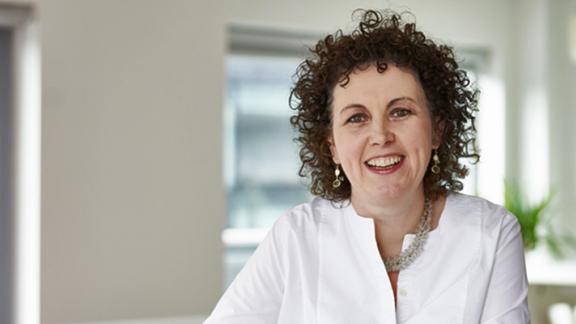NHS Reset: Where is the 'I' in mental health?

In this blog, part of a series of comment pieces from NHS Confederation leaders, members and partners, Sally Hogg highlights the impact of the pandemic on infant mental health and what’s needed now and into the future.
The first 1,001 days of life are a crucial time in human development. Babies’ emotional wellbeing not only affects how they feel and function now, but also how their brains develop. It lays the foundations for lifelong health and wellbeing.
If we don’t act early to address early emotional disturbances, they can escalate into mental health problems with long-term consequences for our children and young people, and the services that work with them.
Despite this, infant mental health is little understood, often overlooked and widely undervalued – including in the responses to COVID-19, as this blog describes. This week (7-12 June) is Infant Mental Health Awareness Week (IMHAW), which provides an opportunity to address this.
What is infant mental health?
Infant mental health describes the social and emotional wellbeing and development of children in the earliest years. Like all people, babies experience a range of emotions in response to what happens in their lives. Although they can’t recognise and describe it to us, babies can feel happy and secure, or stressed and distressed. Their emotional wellbeing influences how they experience, manage and express emotions, and feel safe and secure to explore the world around them.
How has COVID-19 influenced infant mental health?
While babies are less likely to suffer directly from COVID-19, the pandemic is likely to have secondary impacts on their wellbeing. Some families’ problems will have escalated during the COVID-19 crisis as a result of a range of factors such as economic hardship, job insecurity, isolation, anxiety about the virus and the stresses of lockdown. There is evidence of an increase in domestic abuse, and abuse and neglect of children are likely to have escalated behind closed doors. The crisis has been stressful for everyone, but the impact on babies is likely to be greater because this is happening at a critical time in their development where they are particularly vulnerable to family stress and anxiety.
There are clear relationships between perinatal mental health, including stress in pregnancy, and babies emotional wellbeing and development. A wealth of evidence shows that exposure to significant stress in the womb or early life, without support, can have pervasive and lasting impacts on multiple domains of development.
Families who experienced parent-infant relationship problems before the pandemic are likely to have experienced more relational trauma over recent months, and it is likely that other families who were perhaps “just coping” are no longer able to meet their babies’ emotional needs during these difficult times. The COVID-19 outbreak and the response to it are likely to have increased need, heightened inequalities and further depleted already stretched services. High-quality interventions are required now more than ever to address the perfect storm of factors which risk derailing child development for a generation.
Why do we need Infant Mental Health Awareness Week?
The youngest children are so often missing from mental health policies, services and practice. While there is a commitment in the NHS Long Term Plan to ceate a comprehensive offer for 0-25 year olds, the focus is often on older, verbal, school-age children and young people. Babies and toddlers need mental health services that can cater for their unique needs, and support the parent-infant relationships that are so fundamental to early emotional wellbeing and development. Specialised parent-infant relationship teams are multidisciplinary teams that are ideally placed to do this. However, while there are examples of good practice in supporting babies and parents/carers mental health, there are significant gaps in provision. In 2019, children and young people’s mental health services in 42 per cent of CCG areas in England would not accept referrals for children aged two and under. And even among those that said they accepted referrals and could provide data broken down by age, 36 per cent had not seen a child aged two or under.
Why now?
Infant mental health matters now more than ever. All future mental health strategies and plans, including support for mental health in response to the COVID-19 crisis, need to explicitly consider babies and set out clear, tailored responses to meet their needs. Improving infant mental health offers a key opportunity to improve lifelong health and wellbeing and to reduce the likelihood that early trauma and adversity will result in later mental health problems.
Sally Hogg is head of policy and campaigning of Parent-Infant Foundation. Follow her and the organisation on Twitter @salhogg and @parentinfantFdn Read the Foundation's briefing for commissioners: Infant Mental Health.
Mental health is one of the key themes of the NHS Reset campaign.



